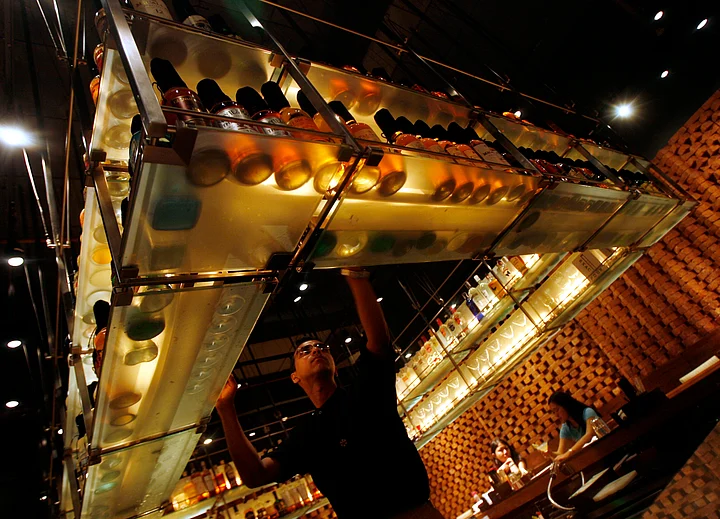The possibility of Mumbai’s nightlife coming alive has brought about much enthusiasm but it has also raised some eyebrows. First, does extended night life refer to only pubs and bars or does it extend to shops, restaurants and general merry-making on the streets?
I asked Mumbai’s police chief Rakesh Maria how the Mumbai police viewed this. He said that plans to extend Mumbai’s night’s life were not across the board; they were strictly on a case to case basis, expressly excluding all residential areas and would be progressive from a policing point of view.
Young people with disposable incomes would have an opportunity to hang out, de-stress and relax. The constabulary and officers, he said; “ought to be preventing nocturnal crime instead of running around checking whether bars had closed down,” adding, “not only does that lead to corruption but divided accountability too.”
The Phoenix mall in Bandra Kurla was given by him as an example. “Were establishments in the BKC Mill Mall complex to stay open until dawn, it would neither affect residents’ sleep nor create a parking problem.”
Can it work? Remember Mumbai banned dance bars in deference to middle class condemnation. Only when the apex court rejected the double standards involved, did another law get enacted. Although the new act permits dance bars there are so many restrictions, that rejection of applications is the norm.
Will the law on dance bars be softened once the curtains open on night life?
New York and London are two cities with whom Mumbai has drawn parallels. The New York police and the City of London police have almost similar sets of instructions whereby the responsibility for orderly night life has been squarely placed on to the management of the bars.
Keeping the premises free from illegal activity including drug sales, underage drinking, over consumption of alcohol, violence, prostitution and sex offences is the owner’s responsibility. Counter-terrorism drills and special training is integral for all security personnel employed to prevent and quell unruly behaviour on the premises.
In theory the same can be done in Mumbai but with one difference: In New York and London, the police has unquestioned authority to deal with managements. That degree of independence simply does not exist for our metro police. Even in Delhi where there is comparatively less political interference the police does not enjoy such autonomy.
Delhi’s notorious Jessica Lal case exemplifies the VIP culture which is pervasive - not just in Delhi but in all metros.
Then there are issues of night transportation, employees’ working hours and women’s safety. All in all, while extended night life sounds glitzy and modern, it would not be possible to wish away administrative considerations based on past experience. In the end the public voice has a way of forcing a U-turn scuppering even the best laid plans.
If however Mumbai’s forays into the night expand employment and the city gains economically, even killjoys would retreat. And if any city can make a go of it, it is Mumbai with its cosmopolitan population and discretionary spending power.
Give it a shot by all means!
(The writer is former Chief Secretary Delhi and one-time Secretary Government of India.)
(At The Quint, we question everything. Play an active role in shaping our journalism by becoming a member today.)
